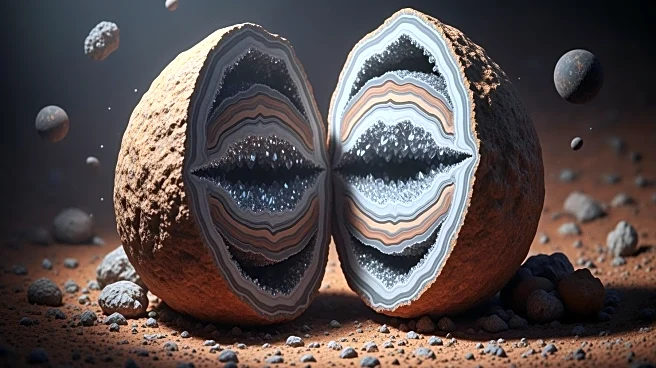What's Happening?
Geologists have uncovered traces of the early 'proto Earth' within the deepest and oldest rocks on the planet. This discovery, made by an international team of researchers, provides a rare glimpse into
Earth's formative years, approximately 4.5 billion years ago. The team, including geochemist Nicole Nie from MIT, identified a unique potassium isotopic signature in ancient rock samples from Greenland, Canada, and Hawaii. This signature suggests these rocks are remnants from the dawn of Earth's history, predating the giant impact with a Mars-sized meteorite that formed the Moon. The findings, published in Nature Geosciences, indicate that these ancient materials have survived despite Earth's dynamic geological processes.
Why It's Important?
This discovery is significant as it offers direct evidence of Earth's early composition, which has largely been erased over billions of years. Understanding the proto Earth's chemical makeup can provide insights into the conditions that led to the formation of our planet and potentially others. The research also suggests that the current inventory of meteorites, used to study Earth's origins, is incomplete. This could lead to new explorations and discoveries about the building blocks of Earth and other planets. The findings have implications for the fields of geology and planetary science, offering a new perspective on the early solar system's dynamics.










